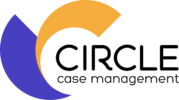The process of completing an Expert Witness report.
What process does an Expert Witness follow when completing an Expert Witness report?
An Expert Witness is typically required to prepare a written report that presents their findings and opinions on a particular subject relevant to a legal case. The purpose of the report is to assist the court in understanding complex technical or specialised matters. Here are general guidelines on how an Expert Witness might approach writing a report:
- Understand the Instructions:
- Clearly understand the instructions provided by the instructing solicitor or legal representative. Be aware of the issues in dispute and the specific questions the court wants the Expert to address.
- Begin the report with a clear and concise introduction. Provide background information on the case, your qualifications, and the scope of your expertise.
- Clearly outline the instructions you received and any limitations on your examination or opinions. Make it clear if there were any restrictions on your access to information or if certain data was not available to you.
- Present the relevant factual background of the case. Provide an overview of the events or circumstances leading to the legal dispute.
- Describe the methods and techniques used in your analysis or investigation. This may include experiments, surveys, interviews, or any other processes relevant to your expertise.
- Present your findings in a clear and organized manner. Use charts, graphs, or tables if applicable. Clearly label and explain any technical terms or jargon.
- Analyse the data and explain the basis for your opinions. Clearly link your conclusions to the evidence and methodology you used. Address any alternative theories or explanations.
- Provide your Expert opinions on the issues in question. Clearly distinguish between facts and opinions. Be prepared to support your opinions with logical reasoning and reference to established principles in your field.
- Summarise your key conclusions. Reiterate the main points of your report and how they relate to the legal issues at hand.
- If there are uncertainties or limitations in your analysis, be transparent about them. Clearly state any assumptions made and acknowledge areas where more information might be needed.
- Include references to any documents, studies, or literature that support your opinions. Provide a bibliography or list of sources consulted during your analysis.
- Ensure that the report is well-organised, free of errors, and written in a clear and accessible manner. Use language that is appropriate for a non-Expert audience.
- Conclude the report with your signature and a statement confirming that the contents of the report are true to the best of your knowledge and belief.
It's important for an Expert Witness to adhere to professional and ethical standards, maintain objectivity, and communicate complex information in a way that is understandable to the court. Additionally, the Expert Witness should be prepared to defend their report during cross-examination in court. Legal advice should be sought by the Expert, if needed during the report-writing process.
Posted by Nicola Kelly on January 24th 2024

